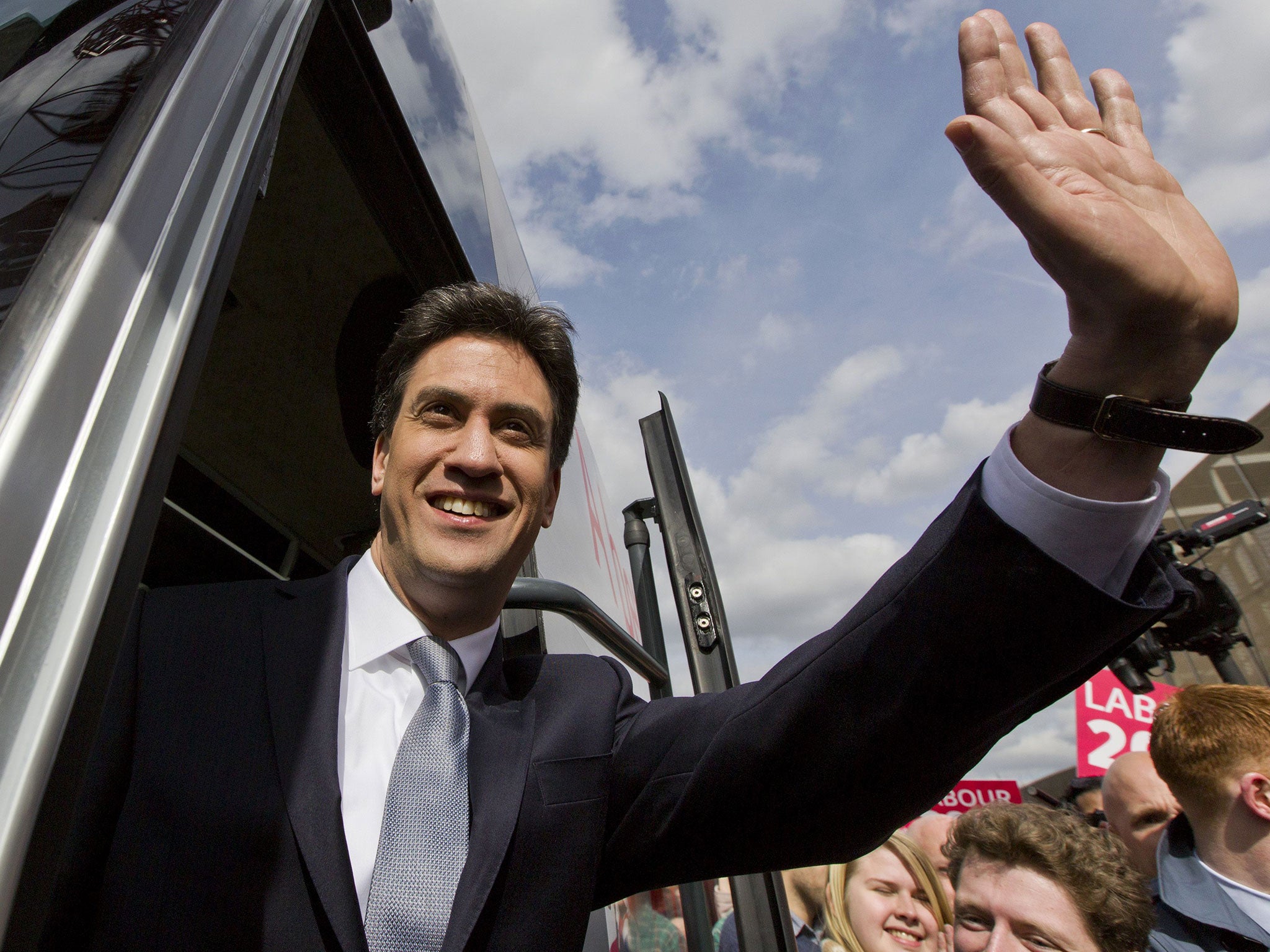General Election 2015: No sign of a clear winner as the race begins
While Ed Miliband appears to have the better chance of being the next prime minister, the Tories could still turn the tables

Your support helps us to tell the story
From reproductive rights to climate change to Big Tech, The Independent is on the ground when the story is developing. Whether it's investigating the financials of Elon Musk's pro-Trump PAC or producing our latest documentary, 'The A Word', which shines a light on the American women fighting for reproductive rights, we know how important it is to parse out the facts from the messaging.
At such a critical moment in US history, we need reporters on the ground. Your donation allows us to keep sending journalists to speak to both sides of the story.
The Independent is trusted by Americans across the entire political spectrum. And unlike many other quality news outlets, we choose not to lock Americans out of our reporting and analysis with paywalls. We believe quality journalism should be available to everyone, paid for by those who can afford it.
Your support makes all the difference.The election campaign kicks off today with the Conservatives and Labour in a virtual dead heat. And while Ed Miliband appears to have the better chance of being the next prime minister, the Tories could still turn the tables.
At 34 per cent, Labour is just one point ahead in our first campaign poll of polls, based on all the polling published last week. The election race has been close for months and has remained so throughout this month. But Labour still trails the SNP north of the border. Consequently, even though the party may be helped by the Tories’ failure to redraw the constituency boundaries, Labour is at present unlikely to win more than 300 seats.
Even if Mr Miliband secured Nick Clegg’s backing along with that of a few Northern Irish MPs, this would still leave him a few seats short of the 326 mark – and thus potentially reliant on the SNP.
Moreover, to win 300 seats, Labour would have to gain 60 from the Tories, nearly all of them constituencies the Tories captured from Labour five years ago. Previous elections suggest the swing in these seats may be less than the national average, as voters reward first-term Tory MPs for their constituency efforts. If the swing to Labour were just one point lower in these Tory marginals, Labour would win around a dozen fewer seats.
Still, David Cameron needs to increase his overall vote if he is to remain prime minister. He is currently well short of his base camp – having enough seats to form a government with Liberal Democrat and DUP backing. He has some apparent advantages. He is more popular than Mr Miliband and his party is trusted more than Labour on the economy.
Subscribe to Independent Premium to bookmark this article
Want to bookmark your favourite articles and stories to read or reference later? Start your Independent Premium subscription today.
Join our commenting forum
Join thought-provoking conversations, follow other Independent readers and see their replies
Comments